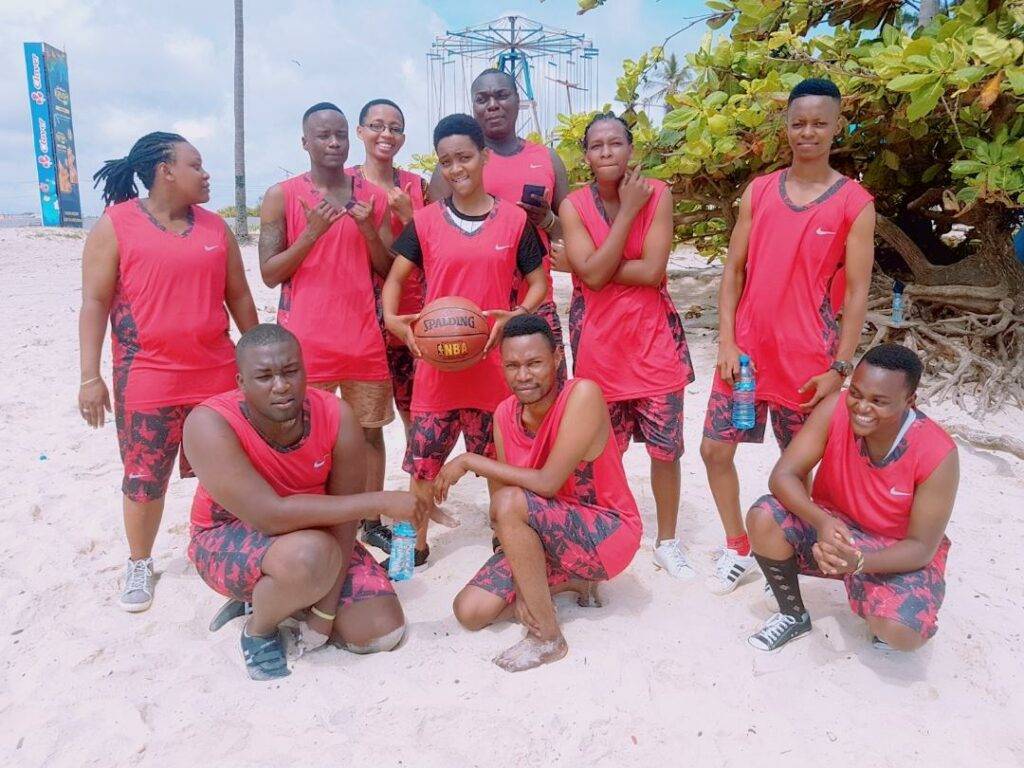March 31 is Transgender Day of Visibility (#TDOV), a commemorative day created in 2009 by Rachel Crandall-Crocker as time aside for us to spotlight the beauty, complexity and diversity amongst trans, non-binary and gender diverse people.
Visibility humanises trans people and the important work they do in the face of the many forces in all parts of the world that are hard at work pathologising, erasing and dehumanising them through oppression laws, violence and discrimination. Instead of focusing on the incomplete story of trans lives being wholly characterised by violence, suffering, rejection and premature death, #TDOV allows us to focus on a more complete story of trans lives as being joyful, euphoric, secure and creative.
There has always been joy amongst trans people. Amongst hardship and exclusion, trans people have always found one another, supported one another and created community. They have always found ways to care for one another as well as laugh, rest and celebrate together. Oftentimes the co-creation of art has been at the centre of this joy, as an expression of their collective struggles, realities and dreams.
As a young feminist fund, FRIDA is committed to ensuring that there are increased, flexible and sustainable resources to support trans youth as they cultivate joy within their communities as political praxis through #artivism. More resources are needed to support trans artists, community art projects, art therapy, and collective actions that are centred on creativity and self expression.

FRIDA Grantee Partner Tanzania Trans Initiative.
“I think gender diverse people are artists at birth: how we diligently create beauty despite difficulty; how we reinvent ourselves and shape our lives with so much creativity!”
– Dani Prisacariu, FRIDA Advisor.
This #TDOV, as we continue to navigate COVID-19, which has added layers of challenges for trans, non-binary and gender diverse young people globally, but specially for those living in the Global South, we honour the work of some of FRIDA’s trans-led and trans-focussed grantee partners. These groups are working in intersectional ways to harness the cathartic, solidarity building and community strengthening power of visibility by creating #artivist spaces that bring them joy while they are rebuilding and changing the world.
Editorial Casa Cuna, Puerto Rico
Founded by Ketsia Ramos, a non-binary transdisciplinary artist in 2018, Editorial Casa Cuna is an artistic collective working on disseminating art and literature by and for marginalised communities. The collective primarily does this through Revista Molotov, an arts and literary magazine. Editorial Casa Cuna has also created a collaborative network of Puerto Rican young artists which is 50 members strong. Through this network, they co-create artivist activities, stage exhibitions, send out publications, coordinate fundraisers, mobilise public actions, convene workshops for the exchange of tools and knowledge, and organize residencies for artists.
SAQFE-سقف, Morocco
SAQFE is an artistic queer feminist collective founded in 2019 by trans, non-binary, queer and womxn artists. The Collective creates safe spaces for artistic creation, sharing, expression and capacity building by and for this community to counter the lack of trans and queer visibility in Morocco which leaves room for massive reproduction of harmful stereotypes regarding the community in the mainstream Moroccan art scene.
Pájarx entre Púas, Chile
The mission of Pájarx entre Púas is to disrupt gendered power structures through the development of artistic and cultural activities for and by young women and trans people deprived of liberty at various prisons in Chile. These activities include art exhibitions, community dialogues as well as capacity strengthening and skills training workshops.
Latvian Drag King Collective, Latvia
This collective was created in 2019 for the purpose of organising the first ever Latvian Drag King Festival dedicated to theatrical performances that explore the embodiment of masculinity. The event’s program included drag king workshops, lectures on drag king history and on trans representation in movies, movie screenings and a drag king contest.
Asociación con Alas Propias Trans, Bolivia
Asociación con Alas Propias Trans currently conducts activities with LGBT groups such as debates, symposia and poetic gatherings on “Plumofobia”, which is the aversion, hatred, rejection, discrimination and aggression to effeminate homosexual men as well as “El Kewa, El Keusa, La Chola, La Ñatita and El preste”, which are the disruptive acts of being openly homosexual and trans in the Bolivian public.
GrlzWave, Georgia
GrlzWave strives to create awareness around issues such as transphobia, homophobia, sexism and climate change amongst young people through the use of videos, photo histories, illustrations and graffiti. They explain how they explore art as a mean to disrupt gendered normative patterns:
“We film women who are working in male-dominated professions, to motivate more girls to be who they want to be. We make videos about trans women that talk about the problems trans people face in Georgian society. We have educational videos to destroy stereotypes about women’s health, sexism, sexual harassment, etc. We film women who went through terrible things, like cancer or war, to motivate other women to never lose hope and fight till the end. We have short shows like Wavetalks, where a professional and a celebrity talk about issues such as lack of sex education in Georgia, abortion, child marriage etc. We write photo histories about women who changed the world. We make illustrations and graffitis to educate people and destroy stereotypes”.
Joy is not extraneous to political work. Indeed, it is political work in and of itself. Through allowing themselves to find joy in their lives, these collectives nourish their activism. By feeling more in contact with the beauty of life, these collectives are equipping themselves to be better able to handle life’s most negative aspects.
Joy is also resistance!